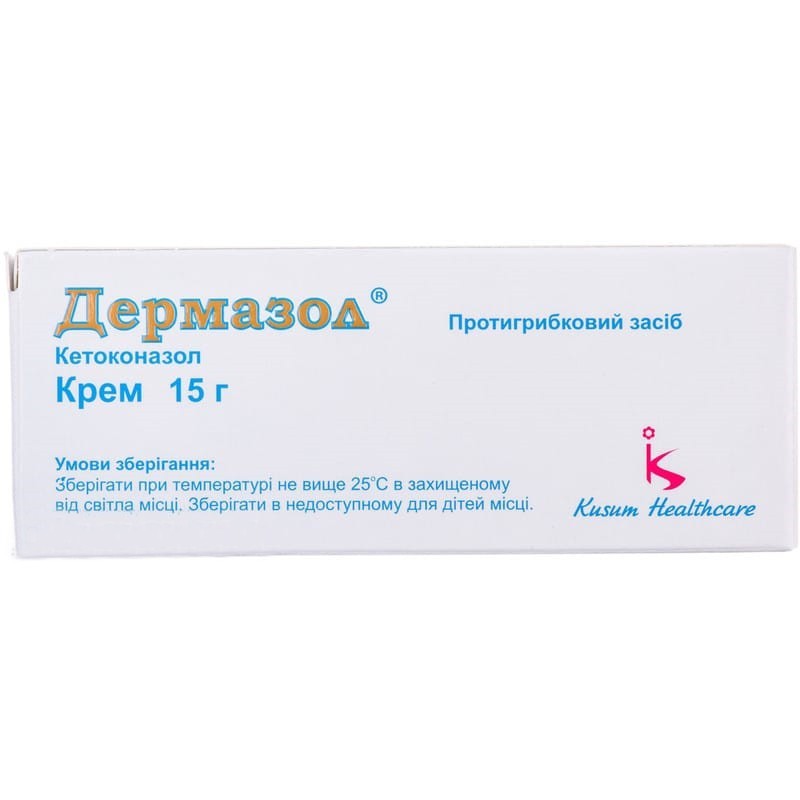



 Secure and encrypted payment processing
Secure and encrypted payment processing We ship to over 40 countries including the USA, UK, Europe, Australia and Japan
We ship to over 40 countries including the USA, UK, Europe, Australia and Japan Guaranteed refund or reship if you haven't received your order
Guaranteed refund or reship if you haven't received your orderKetoconazole is a synthetic derivative of imidazole dioxolane, which has an antifungal effect against dermatophytes trichophyton sp., epidermophyton floccosum and microsporum sp., as well as yeast, including malassezia spp. and candida spp. especially pronounced effect against malassezia spp. ketoconazole inhibits ergosterol biosynthesis in fungi and changes the composition of other lipid components in the membrane.
Ketoconazole cream very quickly eliminates the itching that usually accompanies infections caused by dermatophytes and yeast, as well as Malassezia spp. Symptomatic improvement is observed until the first signs of recovery appear.
Ketoconazole shampoo quickly reduces flaking and itching, which are often associated with dandruff, seborrheic eczema, and pityriasis versicolor.
Pharmacokinetics After topical administration of the drug in adults, the content of ketoconazole in the blood is not determined.
Cream. for topical use in the treatment of skin infections caused by dermatophytes: epidermophytosis of the body, hands, feet, inguinal epidermophytosis caused by trichophyton rubrum, trichophyton mentagrophytes, microsporum canis and epidermophyton floccosum, as well as for the treatment of candidiasis of the skin and pityriasis versicolor.
Dermazole cream should also be prescribed for the treatment of seborrheic dermatitis - a skin condition associated with the presence of Malassezia furfur.
Shampoo. Treatment and prevention of skin and hair lesions caused by the yeast microorganisms Malassezia (formerly called Pityrosporum), such as dandruff, pityriasis versicolor (local), seborrheic dermatitis.
Cream. apply dermazole cream externally. apply cream on affected skin and surrounding areas. General hygiene practices must be followed to control sources of infection and reinfection.
For all patients, the duration of treatment should be based on an individual response to therapy.
| Indications | Cream application rate | Treatment duration | Notes |
|---|---|---|---|
| Candidiasis of the skin (yeast infection) | Once a day | 2-3 weeks | Treatment should be continued for a sufficient time, at least for a few more days after the disappearance of all symptoms. If the symptoms of the disease do not disappear after 4 weeks of treatment, the diagnosis should be reviewed. |
| Pityriasis versicolor | Once a day | 2-3 weeks | |
| Inguinal epidermophytosis | Once a day | 2–4 weeks | |
| Epidermophytosis of the body | Once a day | 3-4 weeks | |
| Epidermophytosis of the hands | Once a day | 4-6 weeks | |
| Epidermophytosis of the feet | Once a day | 4-6 weeks | |
| Seborrheic dermatitis (primary therapy) | 1-2 times a day * | 2–4 weeks | |
| Seborrheic dermatitis (maintenance therapy) | 1 abo 2 times a day | ||
* Depending on the severity of the infection.
Shampoo. Apply shampoo with warm water to the affected areas of the scalp and leave for 3-5 minutes, then rinse with water.
Treatment: dandruff and seborrheic dermatitis (seborrheic eczema): 2 times a week for 2-4 weeks; pityriasis versicolor: daily for 5 days.
Prevention: dandruff and seborrheic dermatitis (seborrheic eczema): weekly or 1 time in 2 weeks; pityriasis versicolor: daily for 3 days (single course of treatment) before the start of the summer season.
Dermazole is contraindicated in persons with a known hypersensitivity to ketoconazole or any of the components of the drug.
Cream
General disorders and reactions at the place of use: erythema, itching, bleeding, discomfort, dryness, inflammation, irritation, paresthesia.
Disorders from the skin and subcutaneous tissue: burning sensation, bullous rash, contact dermatitis, peeling or stickiness of the skin, urticaria.
Immune system disorders: hypersensitivity reactions.
Shampoo
From the immune system: hypersensitivity reactions, including angioedema.
From the nervous system: dysgeusia (violation of taste sensitivity).
Infections and infestations: folliculitis.
From the side of the organ of vision: increased lacrimation, eye irritation.
On the part of the skin and subcutaneous tissue: alopecia, dry skin, a change in the normal structure